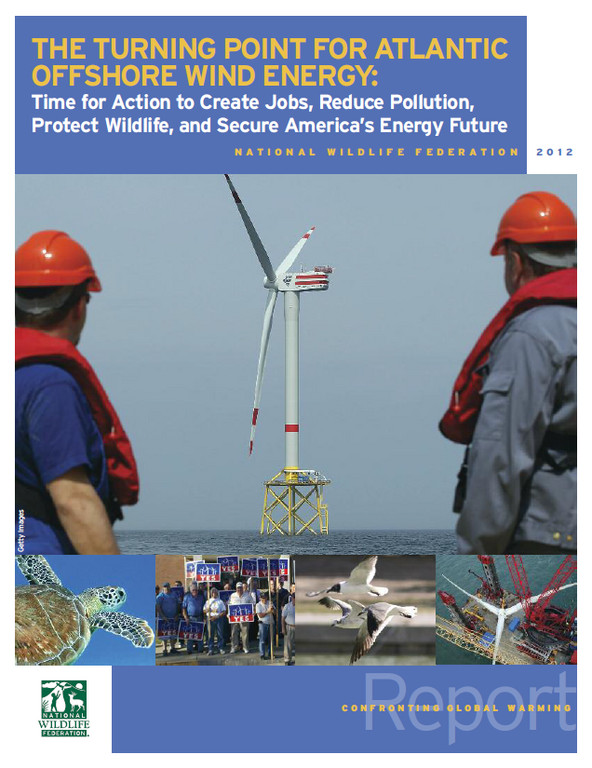
PROVIDENCE – The Ocean State could be one the first states with offshore wind farms, according to a report released by Environment Rhode Island, the Conservation Law Foundation and the Environment Council of Rhode Island.
The report – The Turning Point for Atlantic Offshore Wind Energy – was produced by the National Wildlife Federation and identified building blocks put in place by local, state and federal officials to usher in an energy future including offshore wind.
“Rhode Island has immense untapped offshore wind energy resources,” Channing Jones, program associate with Environment Rhode Island and executive committee member with the local branch of NWF, Environment Council of Rhode Island, said in a statement.
“Rhode Island can make history by being the first state to produce pollution-free energy from offshore wind development,” added Jones. “Our leaders must act now, first by demanding that Congress extend the offshore wind tax credit before it expires at the end of the year, and by moving forward with proposed offshore wind projects in Rhode Island.”
According to the report, Rhode Island lawmakers have been laying the groundwork to ramp up offshore wind in the state. Gov. Lincoln D. Chafee has been a strong supporter of the offshore wind energy initiatives started under former Gov. Donald Carcieri.
“Rhode Island is well-positioned to take advantage of the huge clean energy source just off its coast,” Bill Moore, CEO of Deepwater Wind, said in prepared remarks. “Offshore wind can not only power thousands of homes and businesses, but it can create many high-paying, new jobs right here in the state by tapping into one of our great domestic sources of power.”
“America’s Atlantic coast has some of the best offshore wind energy resources in the world, the technology to harvest it is ready right now, and we have workers ready to do the job,” Catherine Bowes, the National Wildlife Federation’s senior manager for new energy solutions and lead author of the report, said in a statement. “We need to take advantage of this golden opportunity to make our electricity supply cleaner, more wildlife-friendly, and more secure.”












